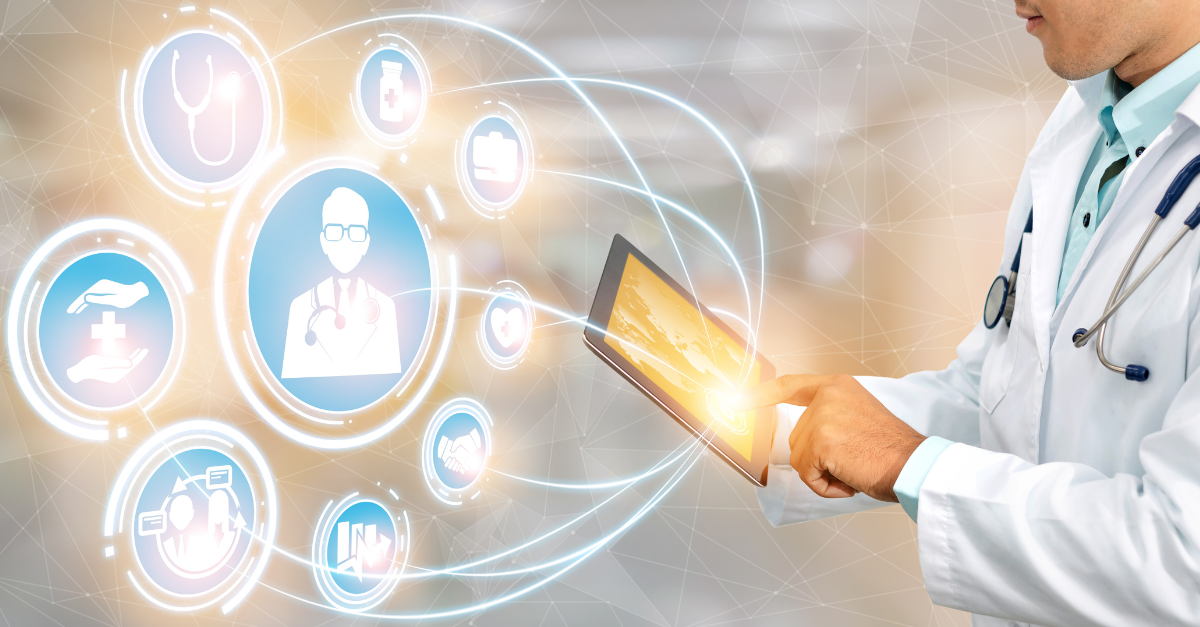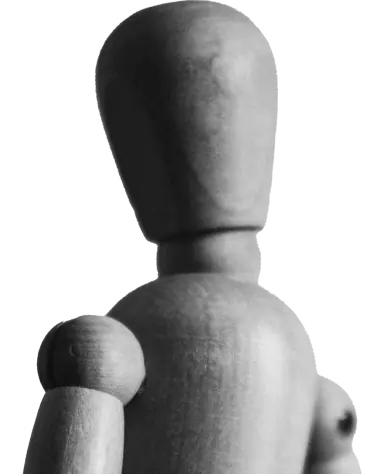6 min read
August 25, 2022


Nick Deshais
Sr. Director | Agility
9 Articles
Author's Articles

Nick Deshais
Sr. Director | Agility
9 Articles
AI
Healthcare
Biomedical research
Innovation
The Future of Healthcare & AI
Artificial intelligence is already being used to help doctors and other healthcare professionals diagnose and treat patients. In fact, there several AI’s already being used by doctors to provide cancer diagnoses. However, many people are still uncertain about how this technology will impact their health, so it’s worth understanding the potential of AI in medicine.
Medical Imaging
AI can be used to analyze medical images and make diagnoses, but it might also be helpful in treatment. Many are saying “AI has the potential to assist with every step of the diagnosis process,” and shine light on how “It could help doctors spot early warning signs that might otherwise go unnoticed.”
The technology is already being used to assist with research into diseases such as Alzheimer’s and Parkinson’s by identifying patterns from large amounts of data collected from patients over time – including visual information such as MRI scans or X-rays
Diagnostics
AI can be used to analyze biomedical data, predict disease and detect patterns in healthcare data. It can also be used to detect anomalies in healthcare data. AI is particularly useful when looking at large amounts of information that would otherwise be too difficult for humans to analyze manually.
For example, if there’s an outbreak of a certain disease or infection among patients with similar symptoms or risk factors (such as age), then AI could help doctors identify it sooner than they might have otherwise been able to do so manually–and potentially save lives along the way!
Biomedical Research
There are many ways that AI could be used to analyze biomedical research data. One of the most obvious is finding patterns in existing data. For example, an AI might be able to look at a dataset and identify correlations between different types of information, such as age and gender with type 2 diabetes risk factors or drug response rates among patients taking certain medications.
Another use for artificial intelligence in biomedical research is to find correlations between different types of data that humans cannot easily see because they require complex algorithms or machine learning models to uncover them (for example: “Patients who drink coffee have lower rates of heart disease than those who don’t.”).
Clinical Decision Support
One of the most obvious ways AI can help healthcare professionals is through clinical decision support. This can take many forms, from helping doctors make diagnoses and treatment choices to providing research tools for them.
Clinical decision support systems are designed to make it easier for medical professionals to complete their work–and AI has been shown to be better than human doctors at some tasks like diagnosing pneumonia or detecting heart attacks in chest X-rays. It’s also important that patients understand what’s happening during their treatment: if they don’t understand why they need surgery, they may not follow through with it; this is where communication comes into play again!
A study by a major player in the industry found that patients who were given an explanation along with their diagnosis were more likely than those who weren’t informed (or only got their diagnosis) ended up following through with whatever treatment was prescribed after surgery.
What Can We Expect From AI?
Artificial intelligence (AI) can be used in many ways in healthcare. For example, AI can help doctors make better decisions and diagnose diseases more accurately. It can also help them find new treatments for diseases that they didn’t know about before.
With the rise of artificial intelligence in healthcare, there is a lot of potential for it to make our lives better. AI can be used to make diagnoses faster than ever before, help people stay healthy by tracking their health data, and even improve research efforts by finding patterns we would have missed without its assistance.
Share this content: